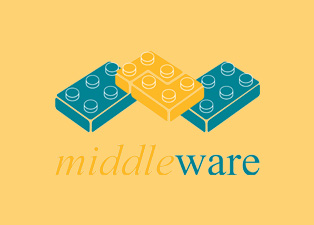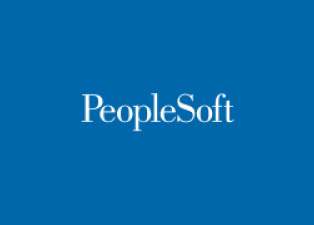WEBSPHERE Admin Online Training
WEBSPHERE Admin Online Training

WEBSPHERE Admin Online Training Course Content:
WebSphere Platform Overview
- WebSphere Product Categories
- WebSphere Development, Presentation, Integration and Deployment Tools
- WebSphere Application Server Features
- WebSphere Application Server Offerings
J2EE Architecture Overview
- Enterprise Application Overview and Development Cycle
- J2EE Architecture and Containers
- Applet, Servlet and JSP Overviews
- JDBC, JNDI and JTA
- EJB, JMS and RMI Over IIOP
- JavaMail, JAF, JAAS and JACC
- XML and JAXP
- New in J2EE 1.4
- Web Services Support: JAX-RPC, SAAJ, Web Services for J2EE and JAXR
- J2EE Connector, Management and Deployment
- Development Roles and Deployment Descriptors
WebSphere Application Server Architecture
- Application Server Architecture Overview
- Under the Cover
- Basic Concepts
- Web Server Plug-ins
- Containers
- Application Server Services: Transaction, ORB, PMI, Message Listener, Naming and Security Services
- Web Services Support
- WebSphere Administration Architecture
- Master Configuration Repository
- Network Deployment Architecture Overview
- Cells, Nodes and Node Agents
- Clusters
WebSphere Application Server Installation
- Hardware/Software Requirements
- Installation Planning
- Cell Topologies
- Installation Process
- GUI and Silent Installation
- Application Server Components
- Verifying the Installation
- WebSphere Configuration Files
Administrative Console
- Starting the Console
- Navigating the Console
- Administrative Tasks
- Scope, Filters and Preferences
- Saving Configuration Changes
- Getting Help
Managing Profiles
- Profile Types
- Directory Structure
- Default Profile
- Creating Profiles
- Using the Profile Creation Wizard
- Using wasprofile
- Federation
Configuring WebSphere Resources
- Defining JDBC Resources
- Configuring JCA Resources
- WebSphere JavaMail Provider
- Defining Virtual Hosts
- WebSphere Variables
- Shared Libraries and Library References
Application Assembly and Packaging
- J2EE Deployable Units
- Assembly Process
- J2EE Modules
- Assembly Steps
- Packaging Checklist
- Deployment Descriptor Elements (EJB, Web, Connector, Client and Application)
- IBM Extensions and Bindings
Application Server Toolkit
- AST Features
- Commonly Used Perspectives and Views
- JAR Dependency Editor
- Creating Projects and Defining Project Properties
- Creating Modules: Web, EJB, Application Client and Connector
- Importing Resources
- Web Deployment Descriptor (Servlet Properties, Filters, Listeners, Environment Variables, References, Pages, MIME Mappings, Parameters and Extensions)
- EJB Deployment Descriptor (EJB Properties, Assembly Descriptor, Transactions, References and Access)
- EJB Client JARs
- Application Client Properties
- Application Deployment Descriptor (Modules and Security)
- Application Validation
- Generating Deployment Code
- Exporting Applications
Enterprise Application Deployment
- Deployment Process
- Deployment Preparation
- Application Installation Options
- Mapping Modules to Servers
- Specifying Virtual Hosts
- Managing Deployed Applications
Java and Process Management
- WebSphere Class Loaders
- Class Loader Hierarchy and Delegation
- Common Class Loading Problems
- Class Loader Configuration
- Process Definition
- JVM Settings
- Monitoring Policy
Session Management
- Session Management Configuration
- Session Persistence
- Session Scope
- WebSphere Affinity
- Session Management Options
- Internal Messaging Properties
- Replication Domains and Entries
- Shared Session Database Settings
Command Line Administration
- Wsadmin Advantages and Disadvantages
- Configuring Wsadmin
- Wsadmin Objects
- Configuration Types and Object Names
- Containment Path
- Running Commands
- JACL
- Running Scripts
- Examples
- Managing Nodes and Servers
- Creating and Restoring Backups
Workload Management
- Workload Management Benefits
- Vertical, Horizontal and Combination Scaling
- Clustering
- Creating and Managing a Cluster
- Implementing Workload Management
- Workload Management Selection Policy
- Load Balancing Problems
Tivoli Performance Viewer
- Analyzed Resources
- Performance Data Reporting Process
- Enabling PMI and JVMPI
- Launching the Performance Viewer
- Performance Monitoring Settings
- Selecting Counters
- Summary Reports
- Performance Viewer: Actions
- Recording and Replaying Performance Data
- Enabling and Viewing Performance Advice
Troubleshooting Tools
- Define Symptoms
- Identify the Source of the Problem
- Trouble-Shooting Resources and Tools
- Runtime Status Messages
- Diagnostic Providers
- Enabling Trace and Specifying Trace Settings
- Viewing Log Files
- WebSphere Logging Tools
- Profiling and Logging Perspective
- Analyzing Entries
- Viewing Information from the Symptom Database
- Dumping the Name Space
WebSphere Security Basics
- Security Risks
- Security Layers
- Authentication and Authorization
- Lazy Authentication
- LTPA
- User Registries and Supported LDAP Servers
- Single Sign-On
- Transport Level Security
- Encryption and Decryption
- Cryptography
- Certificates
- Digital Signatures
- Message Integrity
- SSL and TLS
Defining Security Settings
- Securing Web Applications
- Authenticating Users
- Defining Security Roles, Security Constraints and Web Resource Collections
- Servlet Security Settings
- Securing EJB Applications
- Annotations: Roles and Method Permissions
- Defining Method Permissions and Security Role References
- Security Identity and Run As Identity
- Gathering and Mapping Security Roles
- Security Configuration Files
- Examples
- Security Tips
JMS Deployment and Configuration
- JMS Capabilities and Messaging Styles
- JMS Interactions and Participants
- JMS Runtime Environment
- Message-Driven Beans
- Listener Ports and JMS Activation Specifications
- WebSphere JMS Support
- Feature Comparison
- Security Considerations
- JMS Provider Configuration: Default Messaging, WebSphere MQ and Generic JMS Providers
- Configuring JMS Resources
- JMS References and Transactions
Service Integration Bus
- Bus Features and Components
- SIB Architecture
- Creating a Bus
- Bus Properties
- Bus Security
- Message Store Types
- Adding Bus Members
- Destinations
- Configuring a Foreign Bus
- Messaging Engines
- Linking Messaging Engines
- Server Messaging Properties
Web Service Support
- Service-Oriented Architecture
- Supported Standards
- Web Service Deployment
- SIBWS Setup
- Inbound and Outbound Services
- Handlers and Handler Lists
- Applying a Mediation
- UDDI References
- Gateway Services
Defining Web Services Security
- Supported Specifications
- WebSphere Security Model for Web Services
- Configuration Files
- WS Security Wizard
- Enabling Authentication
- Specifying Message Integrity
- Configuring Confidentiality
- Examples
Conclusion
Drop your query
Most Popular Courses
Achieve your career goal with industry recognised learning paths
What my Client's Say?
-
It was a great course over my expectations. I am eager to have another course wıth you as soon as possıble ~ R. Kamand
-
All in all, it was a very constructive and one in a lifetime experience. I'm so glad that I was part of it.~ T. Engin
-
It was the best decision I had ever made in my life. Although it was expensive for me, but I don't regret even for one second. ~ Maruti Malla
-
Thank you for this great course. I learned a lot of things, I met very nice people and I am happy that I had these 6 crazy weeks with you.".~ Najmul Shar A Baig
-
Very nice and friendly tutor and staff. The course was very fruitful, particularly the input sessions during the first half of it.~ Radha Nandyala
-
It was such great experience, though it was really intensive, it was worth doing it! Cant thank enough all team effort esp Mohan! .~ Rohan Kumar
-
The course was really good because it was a practical course.~ M.Radha patel
-
I liked this experience. Good tutor and nice mates. I will always remember it. ~ Jitu Bavaria











